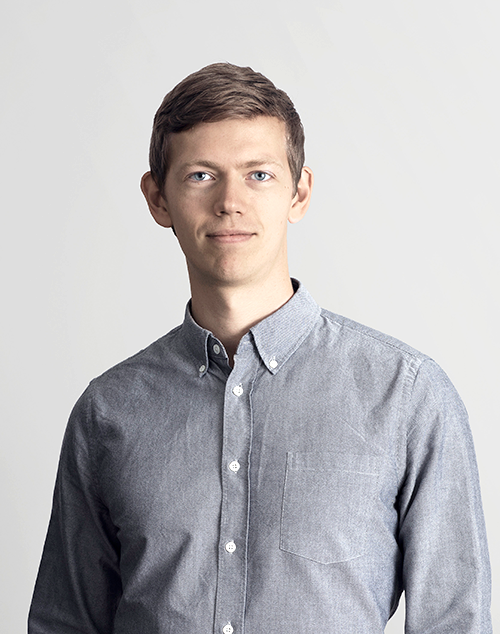Viktor creates products that bring the benefit of AI to education
Viktor Qvafordt graduated from the joint Master’s Programme in Mathematics in 2016. He now works as a Senior Machine Learning Engineer at Sana Labs, an artificial intelligence company in Stockholm that applies recent breakthroughs in machine learning to personalize education.

Hi Viktor, what are you working with at the moment?
I'm a Senior Machine Learning Engineer at Sana Labs, creating products that bring the benefits of AI to education. I work on multiple products, including our core product Sana Learn, a recommender system for personalized learning. Sana Learn integrates with online learning platforms to provide a personalized learning experience using data driven models and algorithms that adapt to each learner's unique behaviour and skill level in order to maximize learning.
I work with research and development. I design and productionize machine learning systems. My time is distributed across researching and prototyping algorithms, implementing them into our backend servers, and exploring new features and products to bring additional value to our business and end users. A typical day consists of working closely with my colleagues on writing code, developing product strategy, reading papers, training models and productionizing our services.
Before Sana Labs I worked in financial technology. I developed software for financial analysis used by some of Sweden’s leading banks and asset managers.
Why did you choose the Master’s programme in Mathematics?
I did my bachelor’s studies in theoretical physics at SU and felt that I wanted to go deeper into the mathematical underpinnings of physics and further explore pure mathematics. The Master’s programme in Mathematics given jointly by KTH and SU was a perfect fit for me. Having the top two mathematics departments in Sweden collaborate to deliver the programme truly provided a world-class education.
And what were the best aspects of your studies?
The focus of my studies was on mathematical aspects of topological quantum mechanics, which is not directly applicable in my current role. However, my studies have primed me to abstract ideas into mathematical formalism. This has been very useful in my work, allowing me to get a clear understanding of complex problems.
Furthermore, having a solid background in mathematics allowed me to quickly transition into machine learning. However, to become a machine learning practitioner it is perhaps equally important to be a skilled software engineer. I have always had a strong interest for programming and early on taught myself software engineering.
My recommendation to theoreticians wanting to work with machine learning is to properly learn software development.
What is your best memory from your time at KTH and SU?
The brilliant and quirky minds with whom I shared my love for mathematics. The satisfaction of deeply understanding the beautiful world of mathematics and how it relates to our physical world.
And what are your plans for the future?
I’m going to continue to improve education on a global scale through AI at Sana Labs. Further into the future I might go back to doing more research, but not necessarily physics or mathematics.
I want to end on a philosophical note. I went into physics and mathematics because I strongly believed that the most fundamental and important question was "How does the universe work?". Over time my perspective has shifted slightly, and I would argue that an even more important question is the so-called Hard problem of consciousness: "What is it that makes certain structures of matter (e.g. our brains) have subjective conscious experience?". We don't really know how to tackle this question. Perhaps we should start with the so-called easy problem: "What processes lead to intelligent behaviour?" This is precisely what the field of artificial intelligence is all about.
